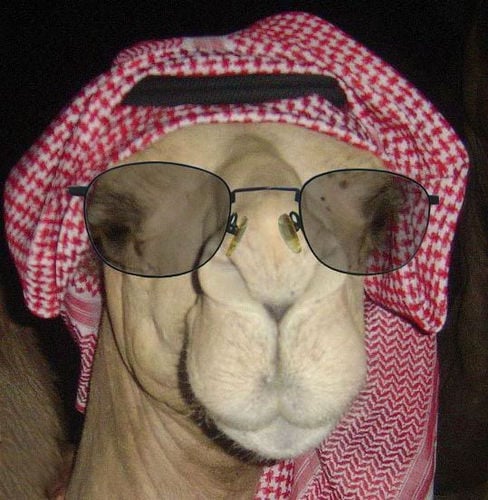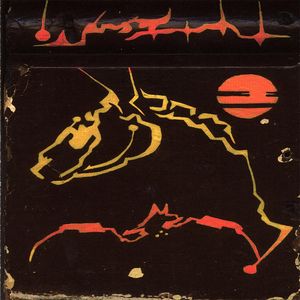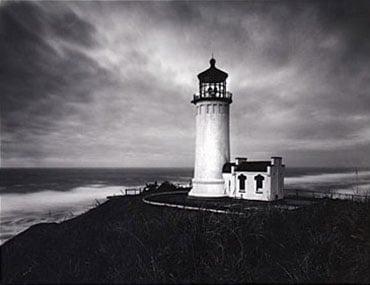/PAlogo_v2.gif) |
|
Post Reply 
|
| Author | |
toroddfuglesteg 
Forum Senior Member 

Retired Joined: March 04 2008 Location: Retirement Home Status: Offline Points: 3658 |
 Topic: Andrew Douglas Rothbard Topic: Andrew Douglas RothbardPosted: January 19 2011 at 15:15 |
|
Andrew Douglas Rothbard is a US-based musician, currently based in San Francisco. After stints as bassist and keyboardist in the bands VSS and Pleasure Forever (and their precursor Slaves) in the 90's, he decided to start recording solo albums, a planned five-record series outlining the Discordian concept of the Law of Fives: Thesis, Antithesis, Synthesis, Parenthesis, and Paralysis, each of which represents a different stage of maya. He started this project in 2003; and so far two of the planned five productions has been released: Abandoned Meander (2006) and Exodusarabesque (2009). I got in touch with Andrew and here is his answers to my questions. ########################################################### Just to start with, please tell us more about your background and why you took up music. I started playing piano at the age of six. I came from a place where
you had to create your own fun, so I spent a lot of time at the piano
learning how to play most days. I wanted to be in a band,
and that's what I spent most of my teenage years trying to do. I
would just make up cassette tapes of fake bands that I was a part of.
I remember trying to record my alarm clock on a hand held
cassette recorder in the fifth grade because I wanted sound effects
on my fake band's album. I grew up with a lot of eighties pop
music. That was what was on the radio. Lot's of Roland
keyboards and drum machines. There was always some kid
with the hippy parents who still had all the old LP's from the
1960's. It was those Beatles records from '66-'70 that
interested me. Music made in a complete vaccum hermetically sealed
from the outside world. The tones actually started to implode
as you get deeper inside. I did not have the vocabulary to
describe what I thought that I heard on those albums, so I just
listened over and over. I had a copy of the White Album on cassette
with no track titles, no cover, nothing but "White Album"
hand scrawled across the tape. Think back before the World
Wide Web, 24 bit remasters, digital booklets explaining each
song, and the scores of books about the sessions at Abbey Road, and
reduce it down to this cassette recorded from an LP that at the time
was twenty years old itself. The Beatles just scared the sh*t out of
me. The epoch came to me when I was
about 13. It was two things really: Syd Barrett and marijuana.
I actually bought the double album, "A Nice Pair".
The cover seemed like it was going to be another Dark Side of
the Moon (Hipgnosis design), but it sounded so similar to those
freaky Beatles records. Everything that was so nightmarish
about those Beatles records became a daydream. The vibe was
much more light. People always talk about Syd in this dark kind
of way, but that first Floyd album destroyed every bad dream I ever
had. I no longer was mourning my lost adolescence. You
could be a child forever on that stuff. I have to admit though, I
really could not shake the darkness of the White Album upon first
listening. I had no idea about Manson, Apple, Maharshi, LSD,
etc. Just an 11 year kid who a year earlier was listening to
Michael Jackson...
Please tell us more about VSS and Pleasure Forever, the bands you played in before going solo. Why did you branch out on your own as a solo artist ? The VSS and Pleasure Forever were a rare and fantastic combination of people that slogged through the trenches in various configurations over the span of eight years. I owe a lot to those guys because I was the youngest member, and they had to put up with my antics while trying to get out on the road, put out albums, etc. The VSS was the first band that I was in that actually left town, and I needed a trip out into the world. This group of people just had a real work ethic. We started the band, and within a month were touring California. I was just in awe of the entire situation for a long time. I had no idea how I even got to be in this group. I had just turned nineteen and the year was 1995. The history of The VSS is not exactly well documented, although the four of us have tried to keep the memory of that band alive to some extent. There is a wonderful re-issue of our our one and only album as well as a DVD of live videos out now from Hyrda Head. After we made the aforementioned album in 1997, I decided that I was going to quit music. At 21 years old, I felt that I had made the penultimate musical statement with this band. I put everything I had into that album, which was recorded in the span of just one week, although it was years in the making. It was just such a complete experience for me, that I thought the only logical conclusion was a sort of death. Perhaps it was the psilocybin talking. Too much Tibetan Book of the Dead. Chasing ego death through the music. So anyways, I told everyone that I was quitting, and that was that for about a week. Some of the guys in the band found me holed up in my girlfriends apartment and basically told me that I was not finished with music. I thought that was an interesting idea, so what next? Pleasure Forever was three of the original four people that were
in The VSS. I was really motivated to make Pleasure
Forever a huge commercially successful rock and roll band. I wanted
to be Queen. The VSS were a part of the DIY post hardcore
community of the 1990's, and after several years of that scene, I
decided I wanted to be a rich and decadent rock and roller. Perhaps
I was following the lineage of the 1960's into the 1970's
subconsciously. The fantasy was to move from a grass roots
struggle to a more glamourous kind of adventure. The first
Pleasure Forever album was supposed to be some kind of riff on the
Great Gatsby to some extent. We were also surround by nouveau
riche dot com yuppies at turn of the millinium San Francisco. It
was headed for a collapse and we kind of knew it, but we wanted to
take a snap shot before it happened. Pleasure Forever signed to a
proper record label, had managers for various aspects of our tours,
and attempted to step our affairs up exactly one notch. We
released our first record in 2001, and played those ten songs for two
years on tour in the the US and Europe. In late 2002, we
attempted to make a new record. This is where a lot of my solo
ideas really started to take shape. The first thing I did was
start to clean up, because the decadent trip was becoming a drag. So
now I could really pay attention to what was happening in the studio.
The second thing I did was buy a proper four track cassette. I
was 26 years old by now, and I needed to learn how to record music
for myself. So we were recording the second Pleasure Forever
record in a proper studio, and I was coming home and trying to take
what I had learned there and apply to the four track, etc.
 Please tell us more about your first album Abandoned Meander from 2006. I started working on solo recording
projects while I was in The VSS in 1996. The one piece of solid
equipment I had was an analog synth, the Roland Juno 6. I would
make recordings on a broken 1/4" reel to reel, and never thought
it would amount to anything other than something for fun. Mainly it
was a lot of synth and guitar drone stuff sped up, slowed down, what
have you. It is precisely these early recordings that became an
integral factor in the Abandoned Meander album. One of the
playback heads on my first real to real was broken, so I would hear
side two playing backwards over what was play forwards on side one.
Sometimes the sounds would sync in amazing ways, and I realized I
could just record the exact notes I wanted backwards under specific
parts of the song if I got a better piece of equipment. I finally
upgraded decks a couple of years later, but only from one track to
two track. I thought that I had bought a 1/4" 4 track, but
it turned out to be what they called a 'mastering' deck with two
stereo channels.
I started recording Abandoned Meander
in 2000 or so on the two track reel to reel. Before then I had
tried my hand at recording direct to cassette. I was touring
and recording with Pleasure Forever as my main musical project, and a
lot of times Abandoned Meander material would end up in the hands of
that band. I was always re-organizing what songs were left over
from Pleasure Forever for my solo stuff. Over dubbing on the two
track was possible, but I would have to bounce tracks using a mixer I
literally found on a street corner. The quality of the bounced
tracks was audibly degenerated. I really like those type of sounds
now, but back then I really felt like hot tape boost/saturation was
the sure sign of a novice engineer. Now it's probably my
favorite type of sound to capture. I wrote the song Tempeste at
a church around the corner from my house, and actually went back
there four years later to record it on the same piano with a four
track. My point is that I had bits and pieces of that album in
my head for five or six years, and did my best to remember everything
so when I could finally execute the idea, it would still be there.
What had been recorded on the two track was like one track, one
take recordings that captured the room, the player, and the
vibe, but punching in or overdubbing was not happening. I held on to
these original takes in hopes of using them once I got better
equipment, but I had ideas beyond what my gear could do.
Finally around 2005, I ended up with a 24 track hard disk
recorder, pro tools, a sequencer, analog drum machines, and a Roland
Juno 60, (which was a programable version of the Juno 6), a JS 200
acoustic, and a Fender Coronado 12 string electric. It would
seem that I had no less than an arsenal of sound power at my disposal
to finish that record, and yet I still went back to that early dirty
sound from the broken tape head as my overall reference point for
that album. I certainly would not have had the capability to be
so exacting with the edits, and placement of sounds if it had not
been for the digital realm. I have to admit that the
baseline for everything on Abandoned Meander was boiled right back
down to a single track analog approach.
Please tell us more about your second album Exodusarabesque from 2009. I love acoustic guitars, and I still
feel that the most challenging musical feat is to try and pull off a
performance with just an acoustic guitar and voice. I toured up
and down the west coast with just a guitar singing the songs for
Abandoned Meander shortly after Pleasure Forever broke up. I
found it to be the most exciting, and challenging tour of my life.
That being said, Exodusarabesque was my attempt at cutting the
last umbilical cord to everything ever having to do with psychedelic
folk. Naturally, it was back to the lab, and back to my
magic broken tape head machine for the answer. I also was
trying to document the failure of 'success', as we know it in the
material world. The world economy was failing right before our eyes,
and it was a shock to a lot of people. I sampled an atm machine
dispensing cash over an over and stuck it in on the last track to
signify the overspending, over inflated, over speculated bubble
bursting at the end of the oughties. In some ways, I was trying
to recapitulate some of the sentiments that were on the first
Pleasure Forever album which was recorded during the dot com bust of
2000.
I went back to a lot of the sounds I
was interested in my early twenties. The rediscovery of
electronic sounds of our childhoods in the 1980's was a big thing
with The VSS. We were playing a lot of shows with hardcore
bands, and we tried to bring a little bit more of the 80's back into
the '90's. It had been about ten years since I had really dug
into those sounds, so I started re-investigating a lot of albums from
that era, with my love for psych and prog, and tried to just amp it
up.
These are the two first albums in a five albums series. Please tell us more about the concept for this five parts series. The five albums in the series are related to the concepts of These, Antithesis, Synthesis, Parenthesis, and Paralysis as outlined in Robert Anton Wilson and Robert Shea's 'Illuminatus! Trilogy'. If you dig around the appendices in the back of the volumes, the are specific elements relating to each stage including Astrology signs, Tarot cards, and I Ching hexagrams. Right now I am working on the last three albums of this series, and trying to correlate the appropriate sounds accordingly. How is your writing and creative processes ? The latest thing is that I'm into is
this idea of no more masterpieces. I really tried with
Exodusarabesque to reach some sort of apotheosis of studio f**kery,
and I feel that I got too caught up in trying to make a masterwork.
I just edited the sh*t out of that record. I thought I
could make Dark Side of the Moon in my studio apartment by myself.
My writing process for the last two years has basically just
jamming with a drum machine and thinking about the beach. California
culture is all kinds of important to me. I pull up to a red
light and my Nuggets compilation gets drowned out by some gangster
bass coming from the car next to me. That's my process really.
Just taking notes on California every day because it takes me
to school more than anything else. At the same time, I admit to
trying to impress the record nerds with that last album. That's
the end of it though. Like I said, no more masterpieces.
For those of the readers who are not
familiar with your music: How would you describe your music ?
Unprogressive.
What is your plans for the rest of this
year and beyond ?
I'm going to release the last three
albums of the five album series at the end of the year.
To wrap up this interview, is there
anything you want to add to this interview ? Please visit my site:
to download the entire five record set at the end of 2011! Peace
in the valley brothers and sisters. Thank you to Andrew for this interview |
|
 |
|
avestin 
Special Collaborator 

Honorary Collaborator Joined: September 18 2005 Status: Offline Points: 12625 |
 Posted: January 19 2011 at 15:36 Posted: January 19 2011 at 15:36 |
|
Now here's a guy I've been waiting to read more about; thanks for this interview
|
|
 |
|
Post Reply 
|
|
| Forum Jump | Forum Permissions  You cannot post new topics in this forum You cannot reply to topics in this forum You cannot delete your posts in this forum You cannot edit your posts in this forum You cannot create polls in this forum You cannot vote in polls in this forum |